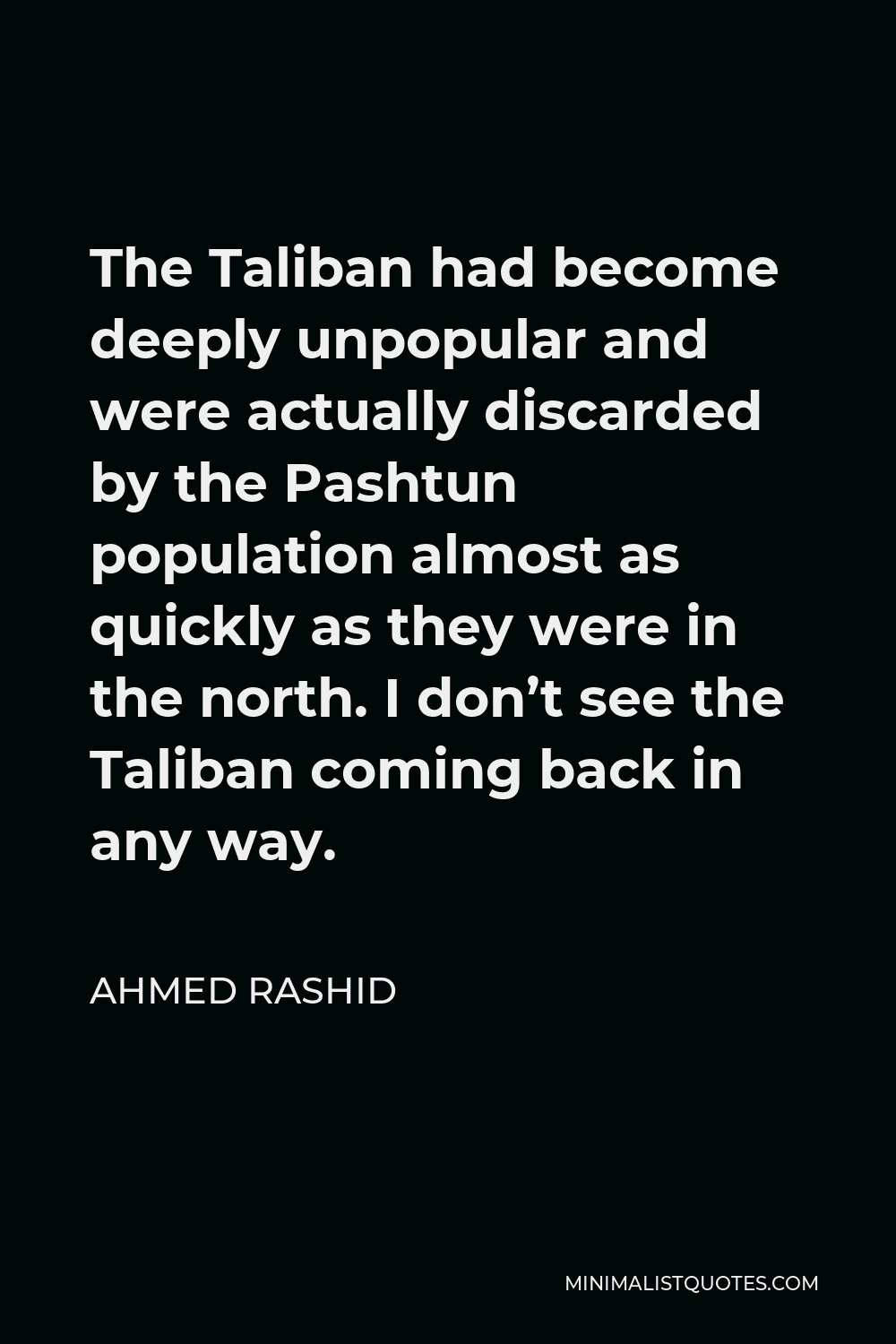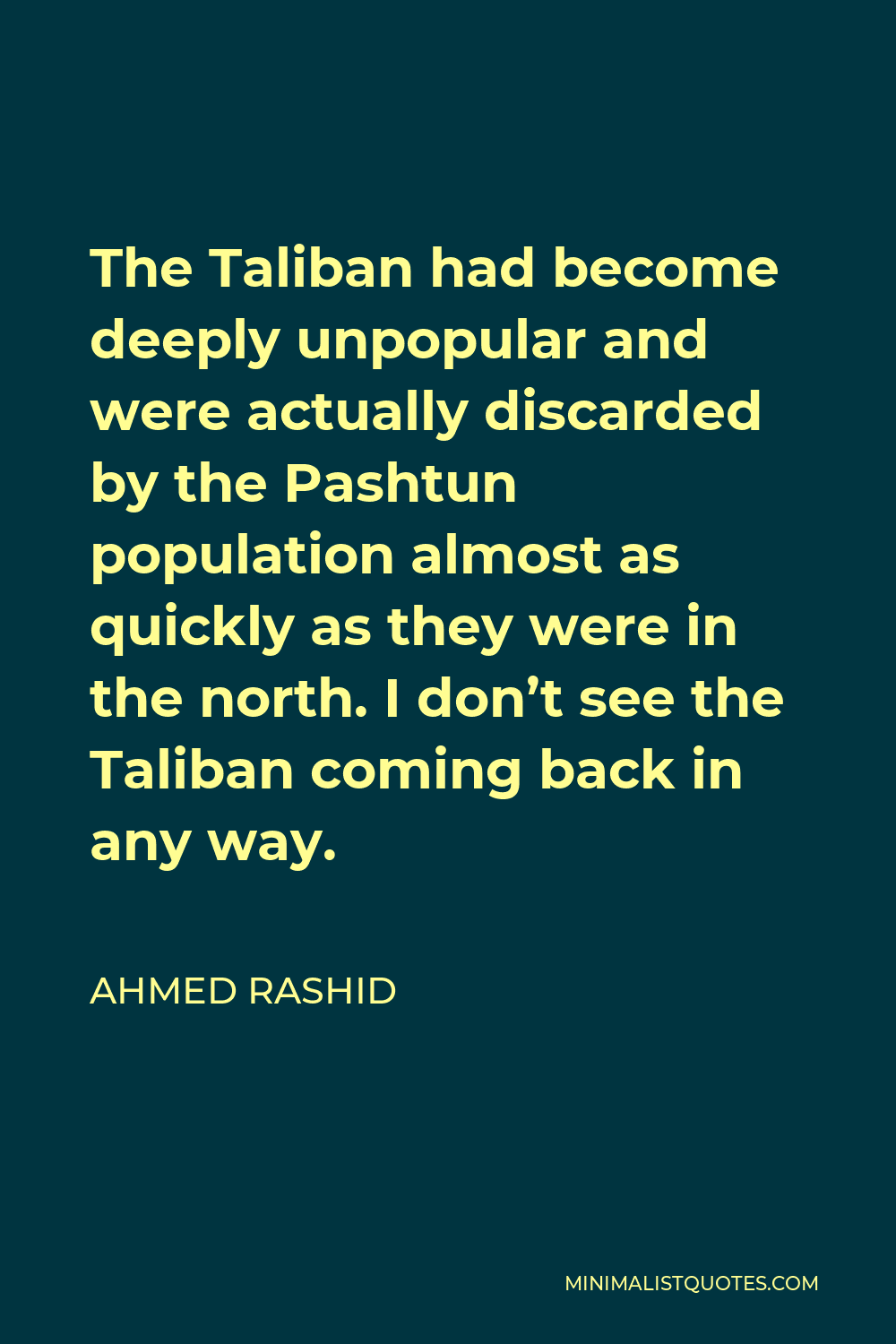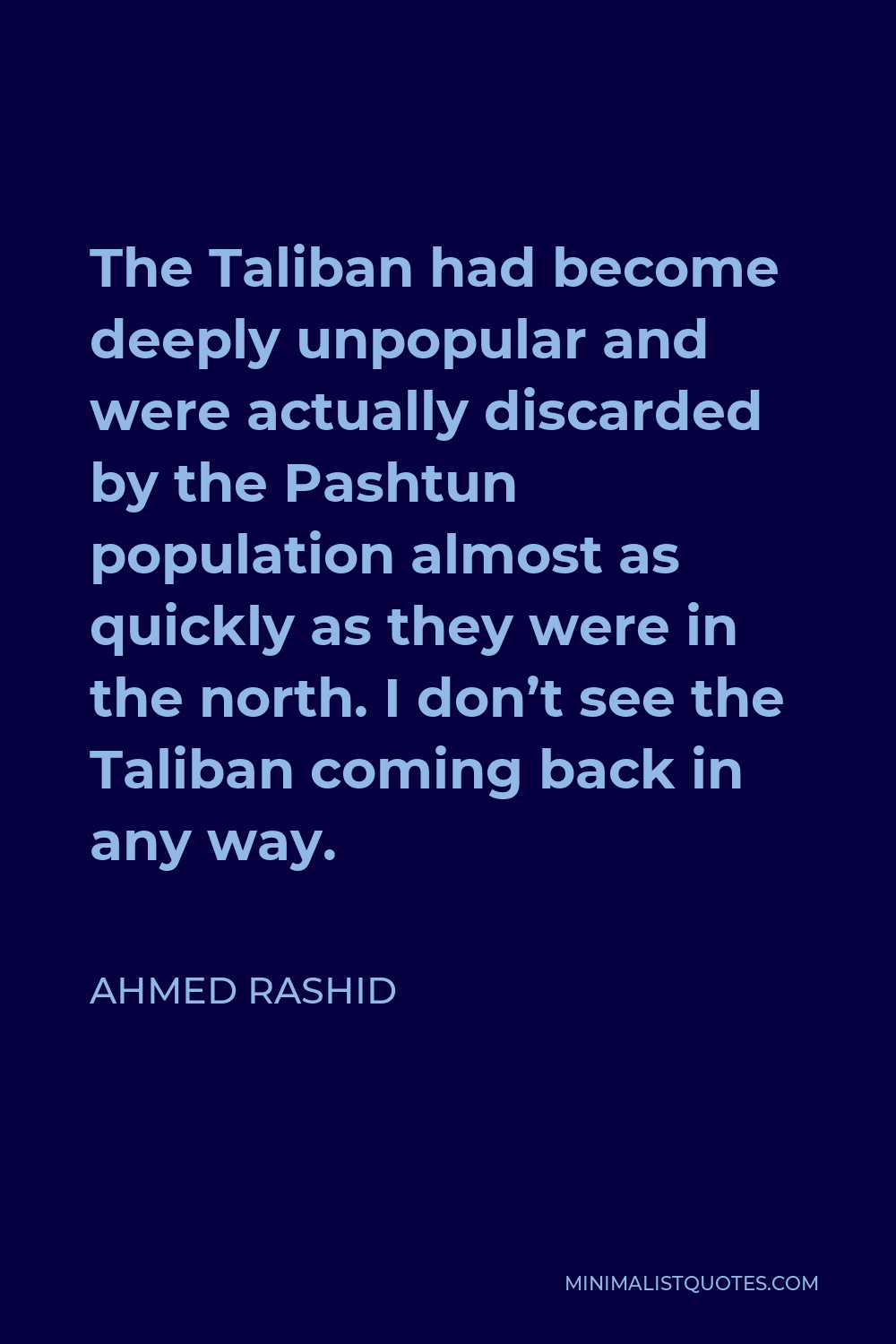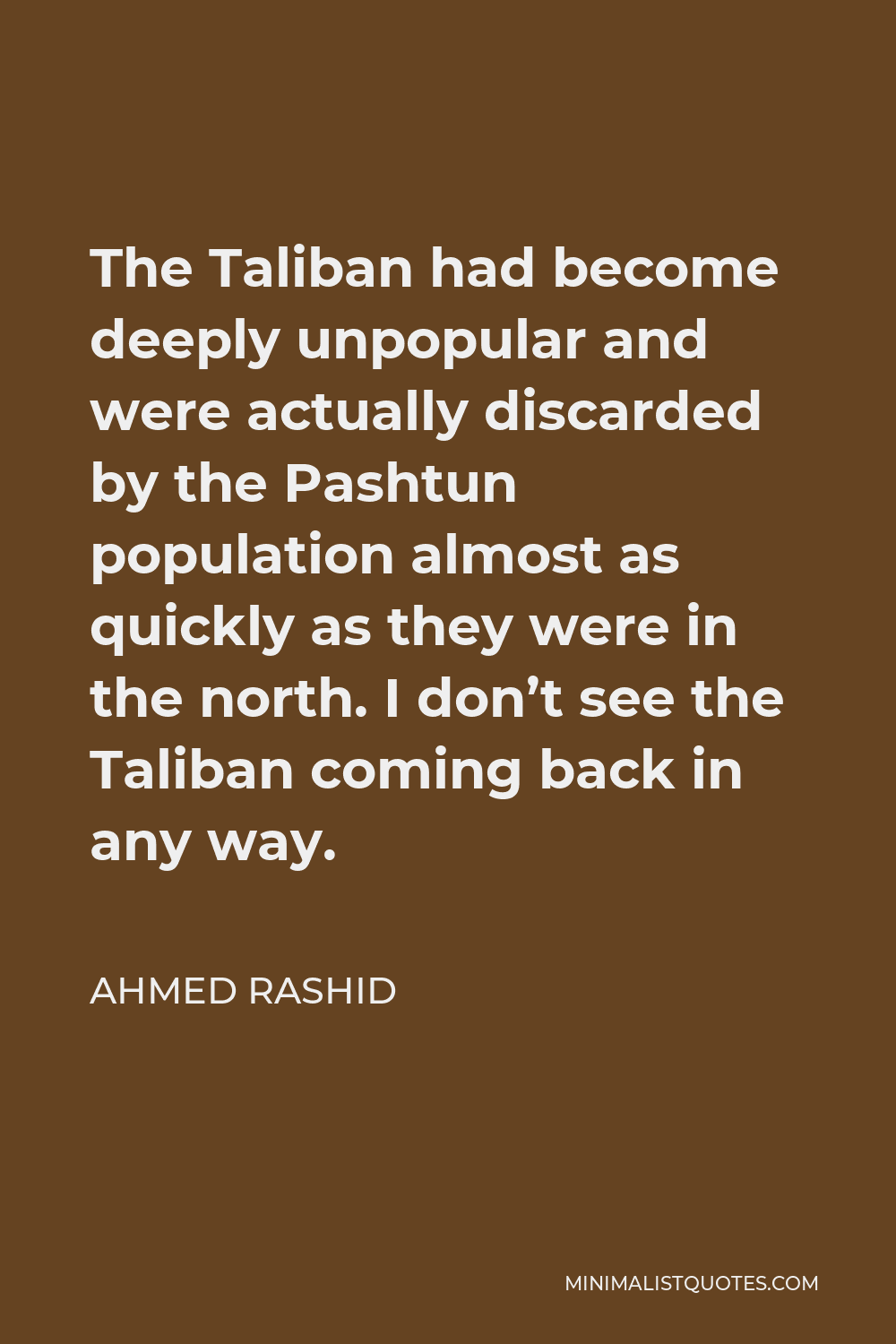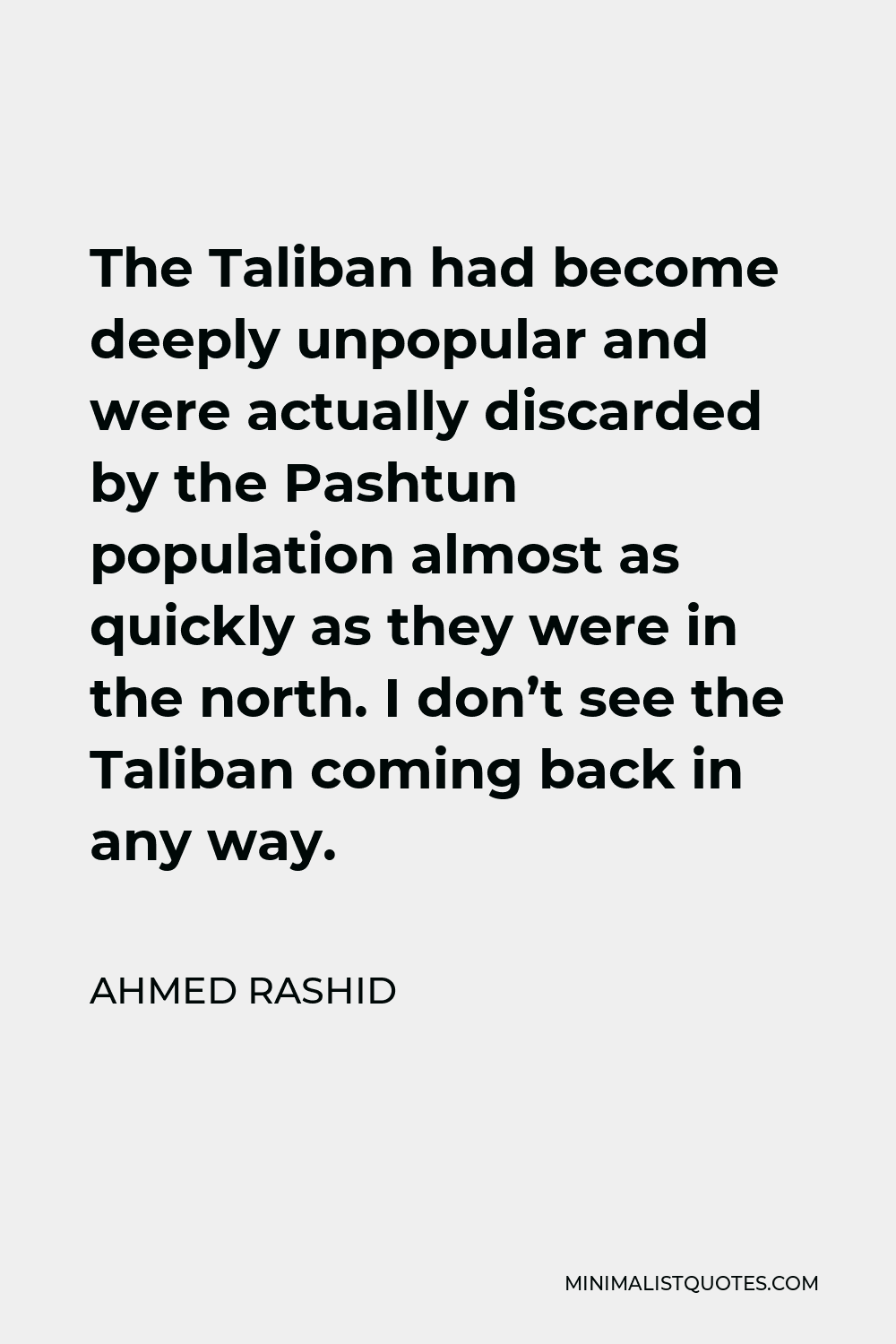George W. Bush and Tony Blair made the promise that they would not tolerate failed states because they could become a haven for terrorists. And today? The number increases.
AHMED RASHIDThe Taliban had become deeply unpopular and were actually discarded by the Pashtun population almost as quickly as they were in the north. I don’t see the Taliban coming back in any way.
More Ahmed Rashid Quotes
-





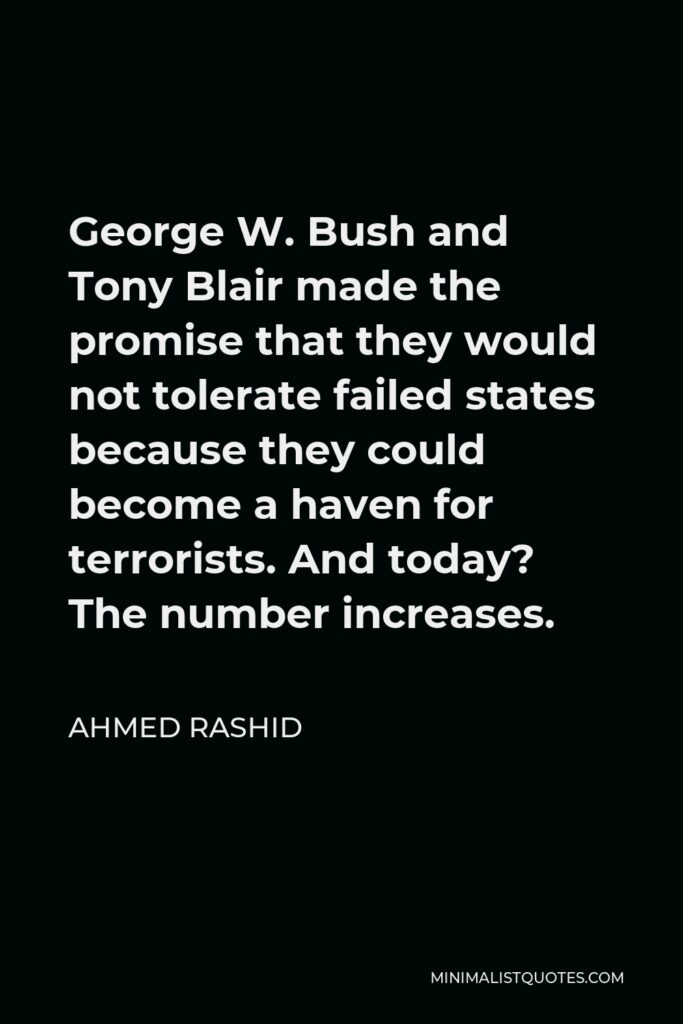

-





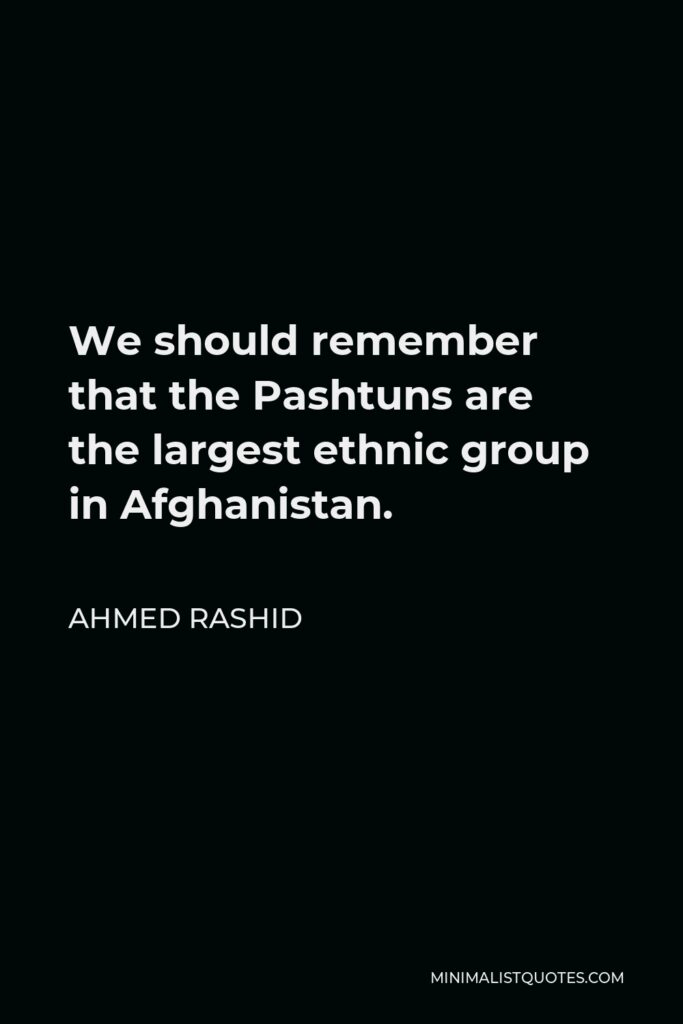

We should remember that the Pashtuns are the largest ethnic group in Afghanistan.
AHMED RASHID -





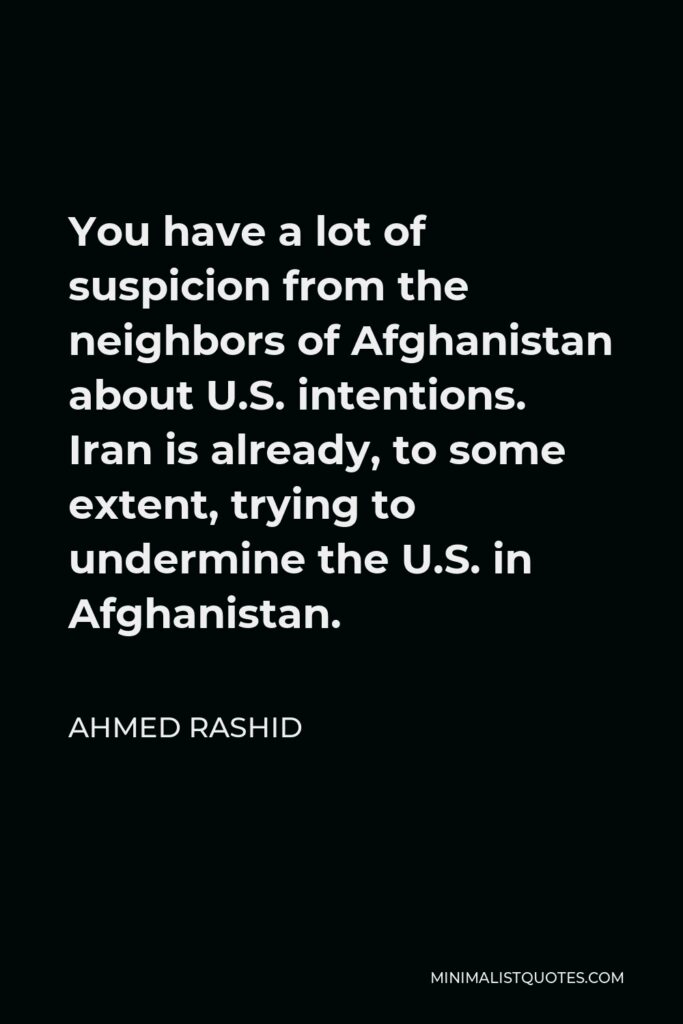

You have a lot of suspicion from the neighbors of Afghanistan about U.S. intentions. Iran is already, to some extent, trying to undermine the U.S. in Afghanistan.
AHMED RASHID -





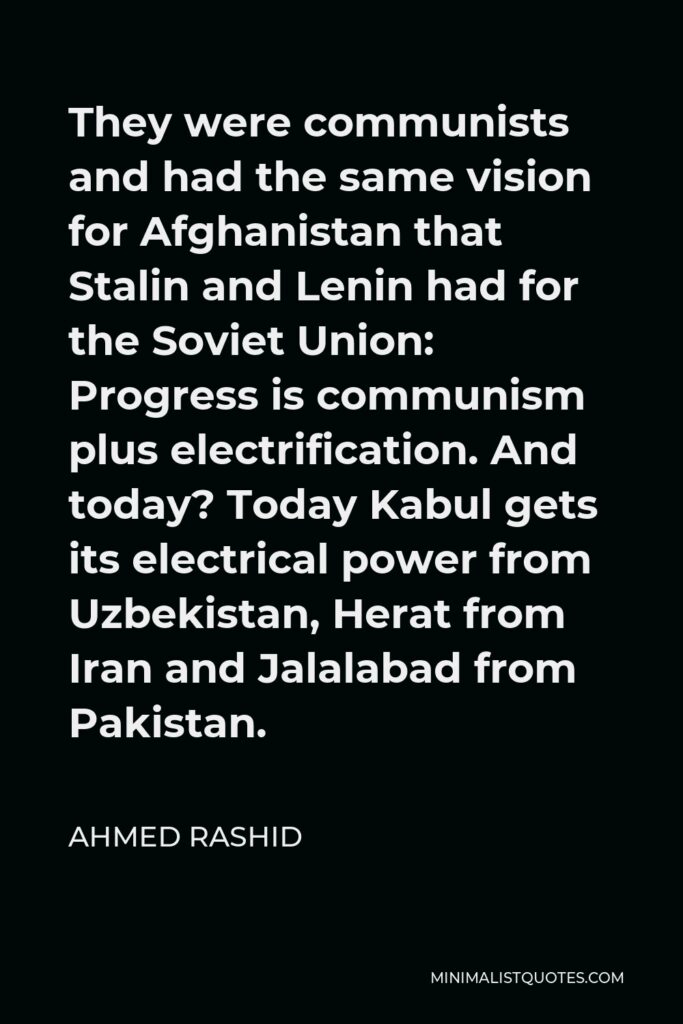

They were communists and had the same vision for Afghanistan that Stalin and Lenin had for the Soviet Union: Progress is communism plus electrification. And today? Today Kabul gets its electrical power from Uzbekistan, Herat from Iran and Jalalabad from Pakistan.
AHMED RASHID -





![Ahmed Rashid Quote - [Mullah Omar] gave himself this religious title. So it was something that all those people there who swore an oath of loyalty to him as a religious leader could not easily get rid of.](https://minimalistquotes.com/wp-content/uploads/2022/07/mullah-omar-gave-himself-this-religious-title-so-i-683x1024.jpg)

[Mullah Omar] gave himself this religious title. So it was something that all those people there who swore an oath of loyalty to him as a religious leader could not easily get rid of.
AHMED RASHID -





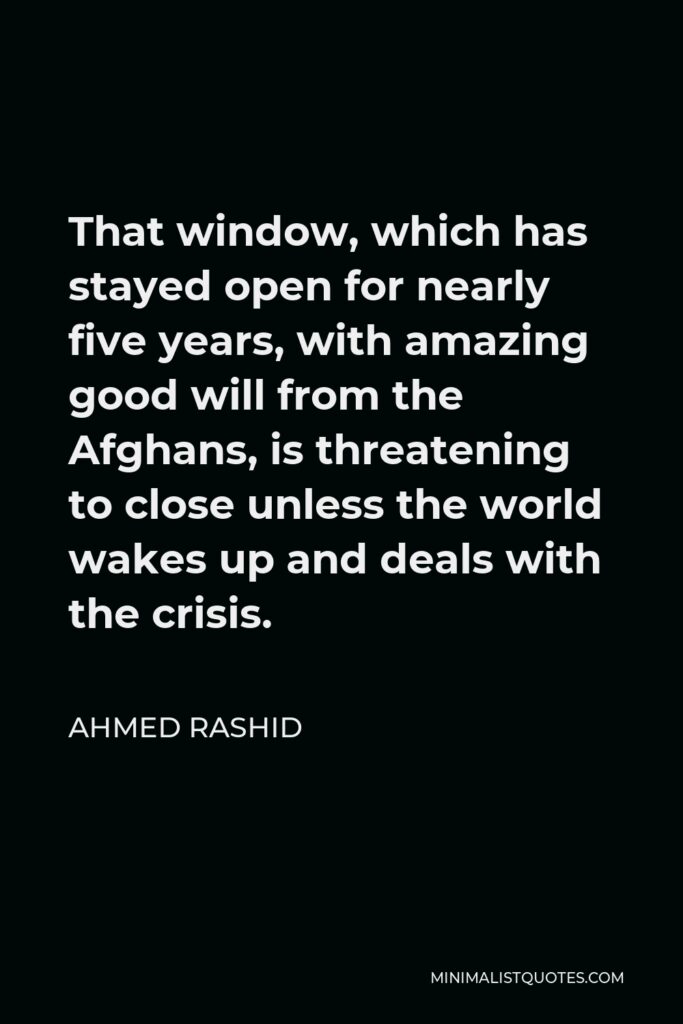

That window, which has stayed open for nearly five years, with amazing good will from the Afghans, is threatening to close unless the world wakes up and deals with the crisis.
AHMED RASHID -





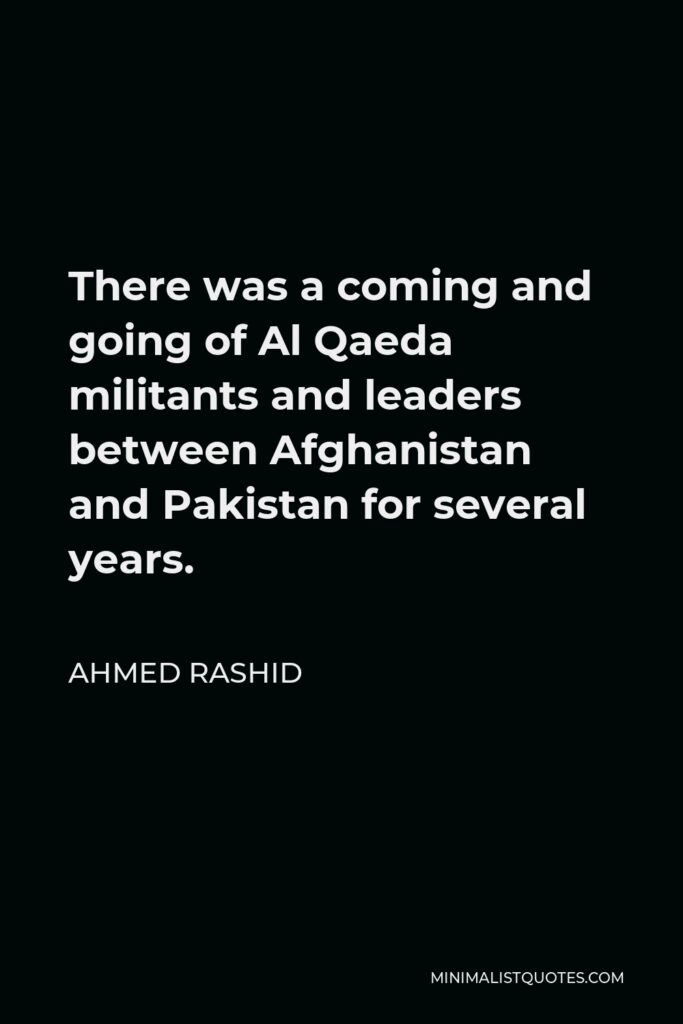

There was a coming and going of Al Qaeda militants and leaders between Afghanistan and Pakistan for several years.
AHMED RASHID -





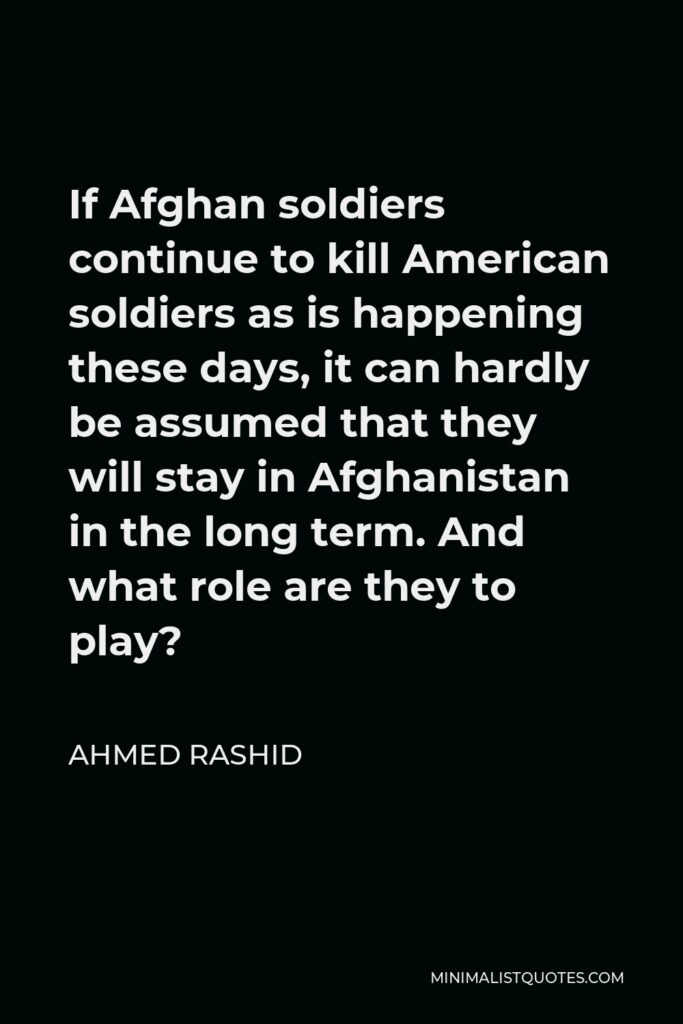

If Afghan soldiers continue to kill American soldiers as is happening these days, it can hardly be assumed that they will stay in Afghanistan in the long term. And what role are they to play?
AHMED RASHID -





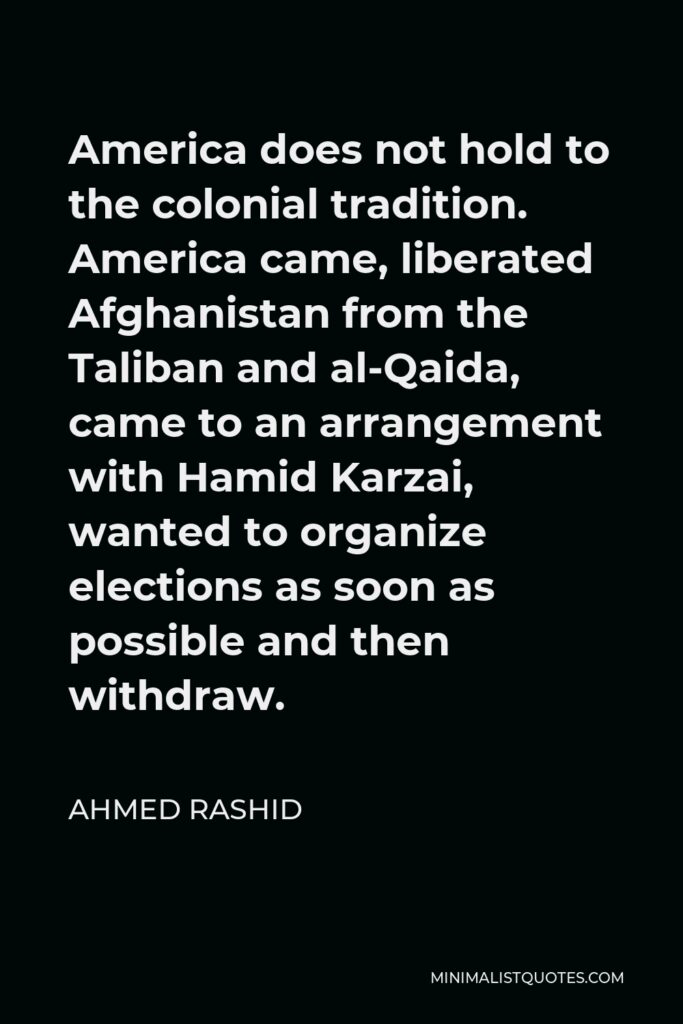

America does not hold to the colonial tradition. America came, liberated Afghanistan from the Taliban and al-Qaida, came to an arrangement with Hamid Karzai, wanted to organize elections as soon as possible and then withdraw.
AHMED RASHID -





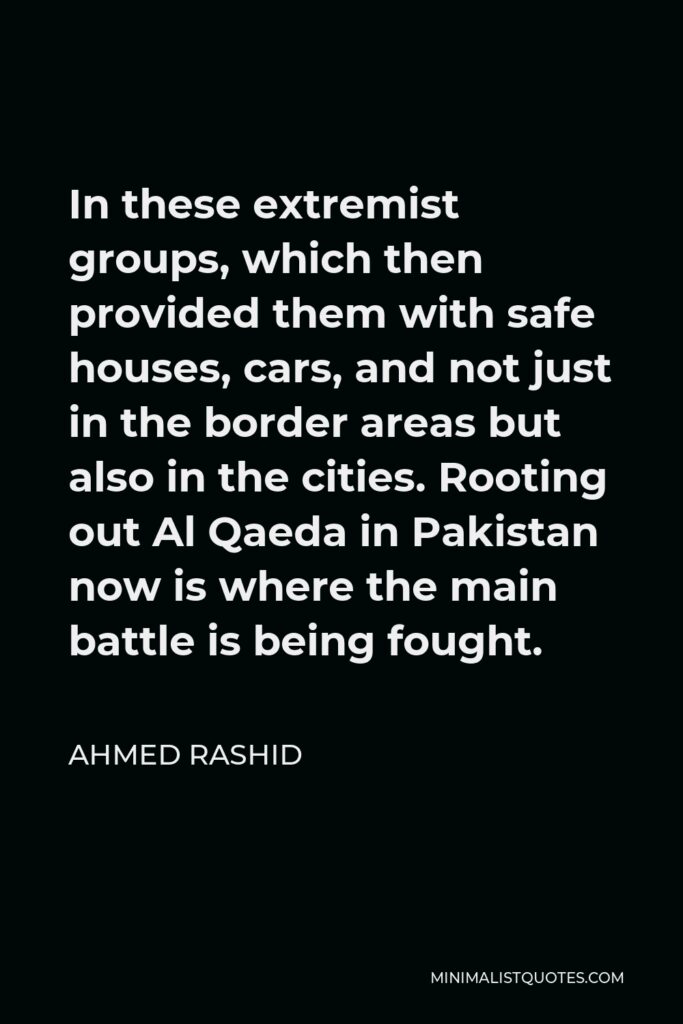

In these extremist groups, which then provided them with safe houses, cars, and not just in the border areas but also in the cities. Rooting out Al Qaeda in Pakistan now is where the main battle is being fought.
AHMED RASHID -





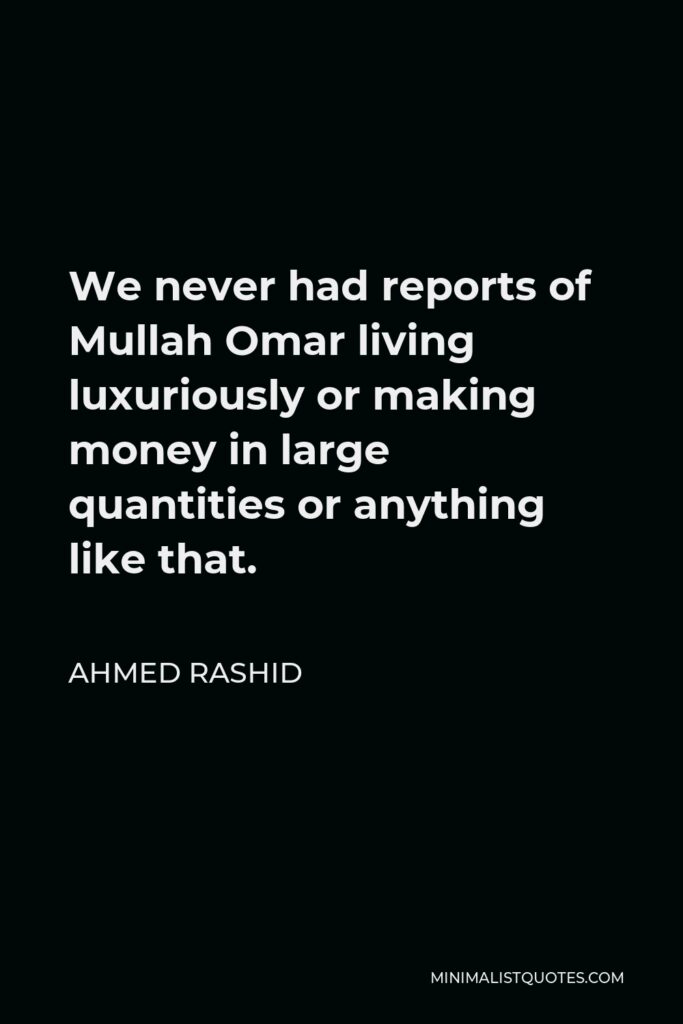

We never had reports of Mullah Omar living luxuriously or making money in large quantities or anything like that.
AHMED RASHID -





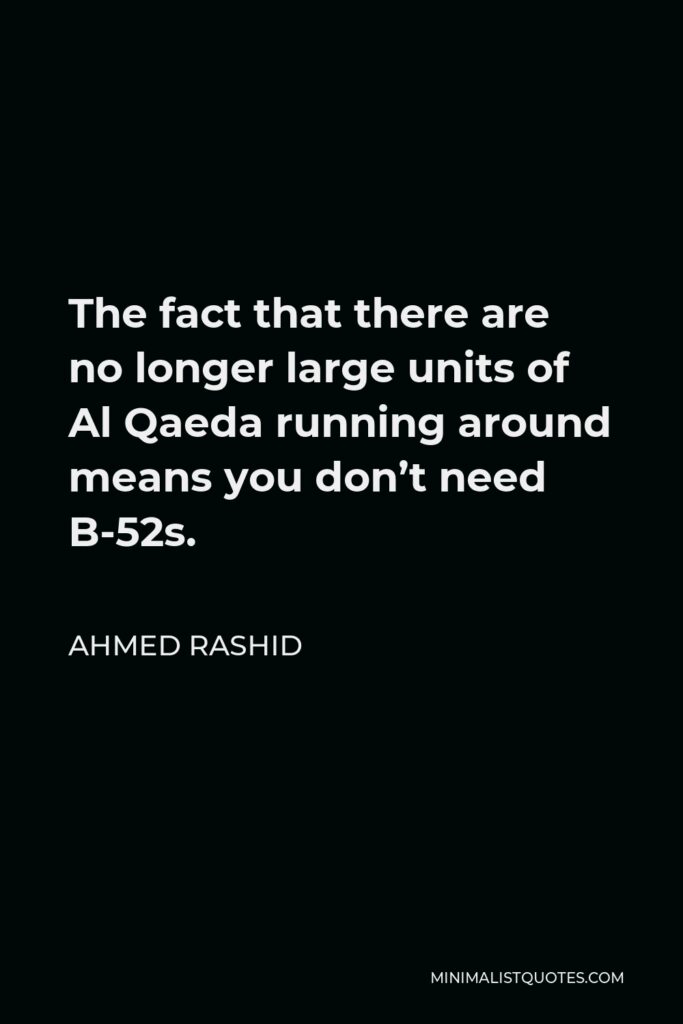

The fact that there are no longer large units of Al Qaeda running around means you don’t need B-52s.
AHMED RASHID -





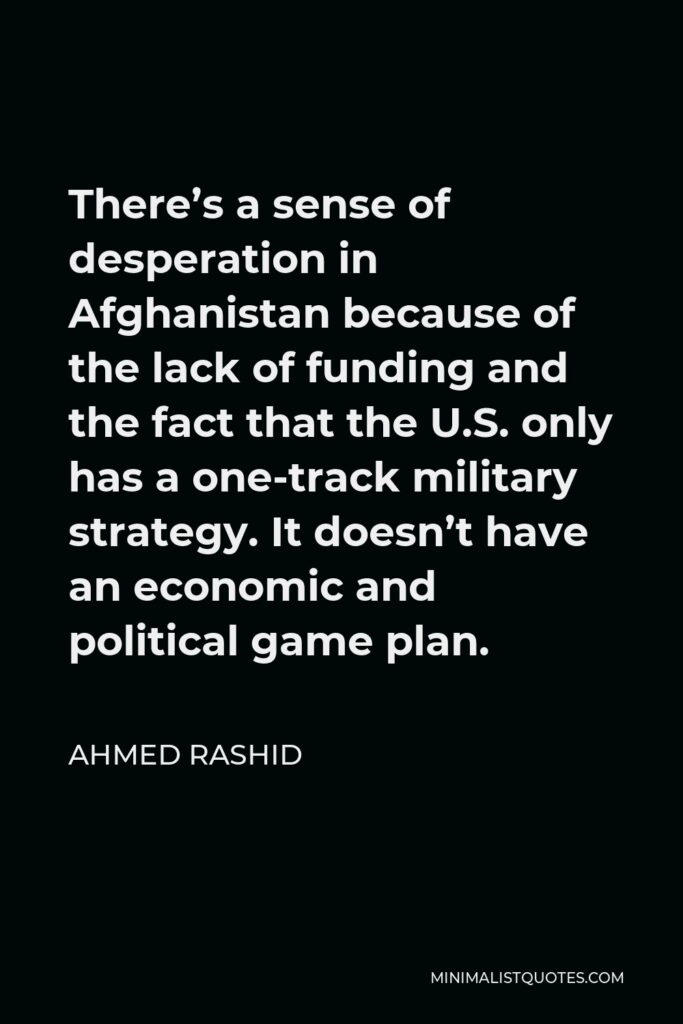

There’s a sense of desperation in Afghanistan because of the lack of funding and the fact that the U.S. only has a one-track military strategy. It doesn’t have an economic and political game plan.
AHMED RASHID -





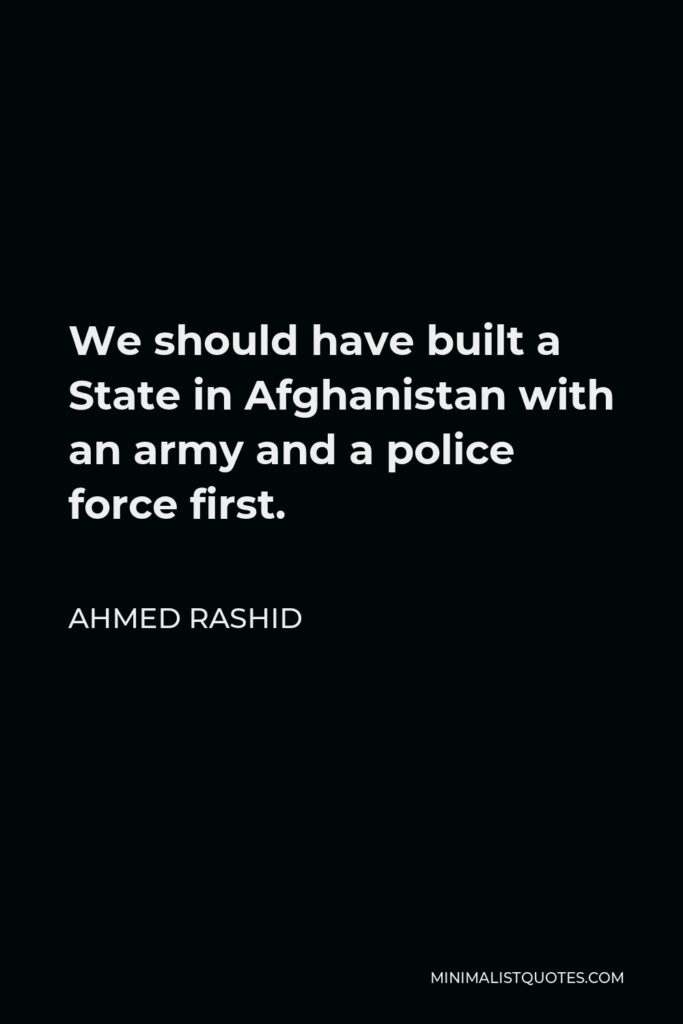

We should have built a State in Afghanistan with an army and a police force first.
AHMED RASHID -





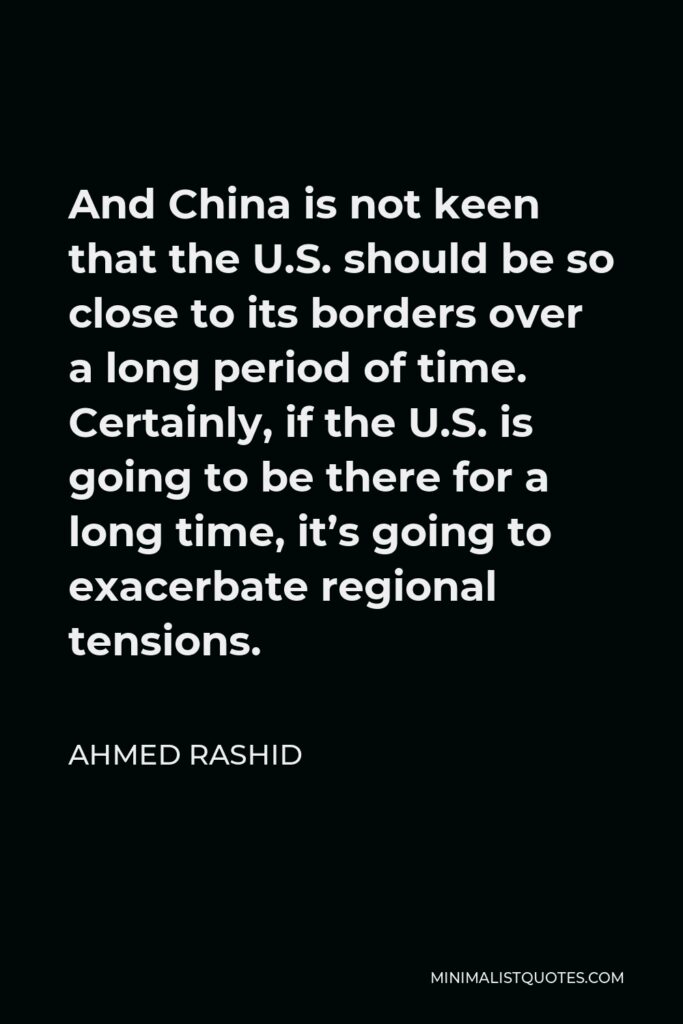

And China is not keen that the U.S. should be so close to its borders over a long period of time. Certainly, if the U.S. is going to be there for a long time, it’s going to exacerbate regional tensions.
AHMED RASHID -





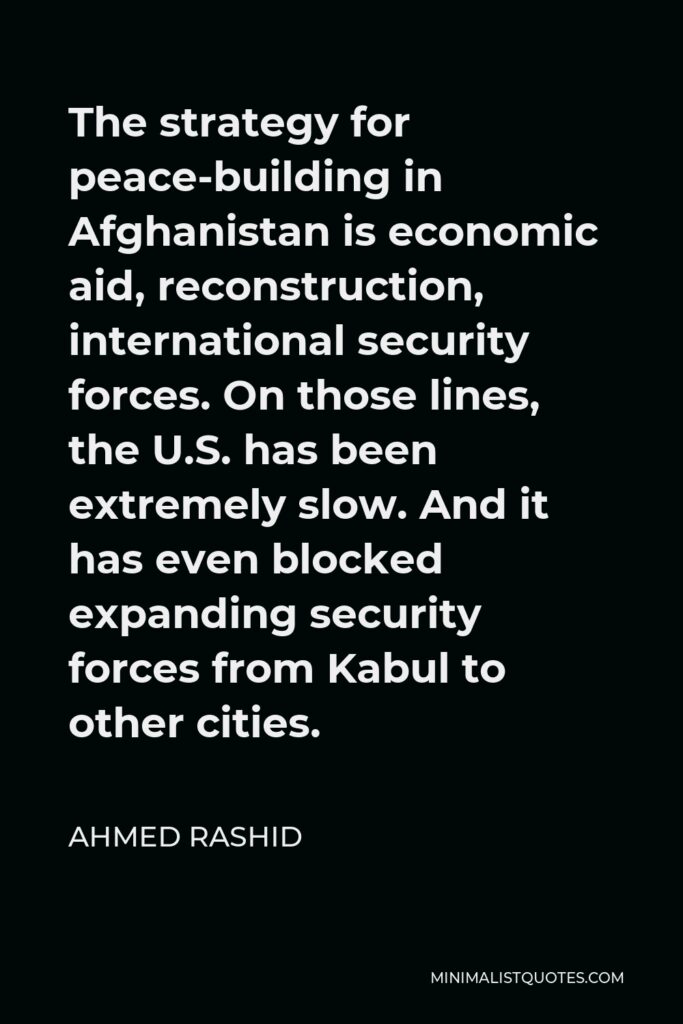

The strategy for peace-building in Afghanistan is economic aid, reconstruction, international security forces. On those lines, the U.S. has been extremely slow. And it has even blocked expanding security forces from Kabul to other cities.
AHMED RASHID
